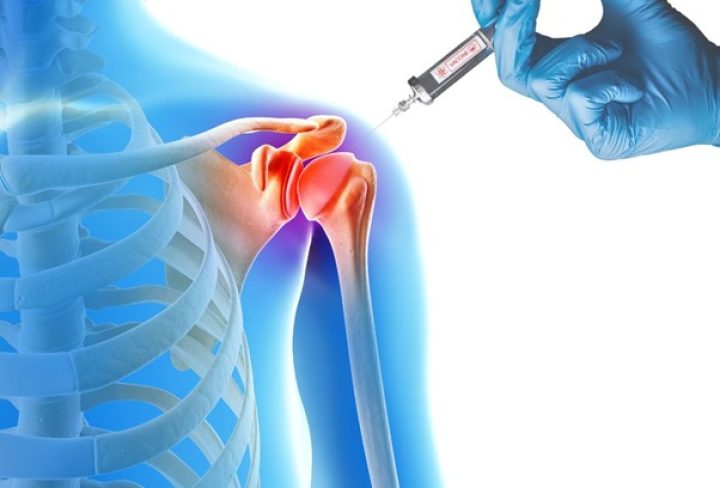Shoulder joint hydro dilation, also called hydrodistension, is a minimally invasive treatment for frozen shoulder (adhesive capsulitis). This condition causes pain and stiffness due to thickening of the shoulder joint capsule. During hydrodilation, a mixture of saline (saltwater) and anesthesia is injected into the shoulder joint capsule using guidance from ultrasound or fluoroscopy.
What is Frozen Shoulder?
Frozen shoulder restricts shoulder movement and causes pain due to tightened joint capsules. Causes include injury, overuse, diabetes, or prior shoulder surgery.
When is Shoulder Joint Hydrodilation Used?
Recommended when standard treatments like physical therapy and anti-inflammatory drugs don’t relieve symptoms. It aims to stretch the capsule and break down scar tissue, improving shoulder mobility and reducing pain.
The Procedure
- Preparation: Fasting and medication adjustments may be required beforehand.
- Injection: You’ll lie down or sit while the area around your shoulder is cleaned and numbed. Using imaging guidance, a needle is inserted into the joint capsule to deliver the saline and anesthetic.
- After the Procedure: You’ll be monitored briefly to ensure no immediate issues before going home the same day.
Benefits of Shoulder Joint Hydrodilation
- Improved Motion: Often leads to better shoulder movement.
- Pain Relief: Reduces pain associated with frozen shoulder.
- Less Invasive: Compared to surgery, it requires less recovery time.
- Alternative to Surgery: May help some avoid more invasive procedures.
Considerations
While generally safe, potential risks include infection, temporary pain increase, and allergic reactions to medications used.
Recovery
- Initial Discomfort: Some soreness at the injection site is common.
- Physical Therapy: Often recommended afterward to enhance shoulder strength and movement.
- Gradual Progress: Full effects may take weeks to fully improve pain and motion.
Shoulder joint hydro-dilation offers a non-surgical option for alleviating frozen shoulder symptoms, enhancing mobility, and reducing pain. If you’re experiencing frozen shoulder symptoms, consult a healthcare provider to discuss whether hydro-dilation is right for you. Understanding the procedure, its benefits, and recovery can help you manage shoulder health effectively.


